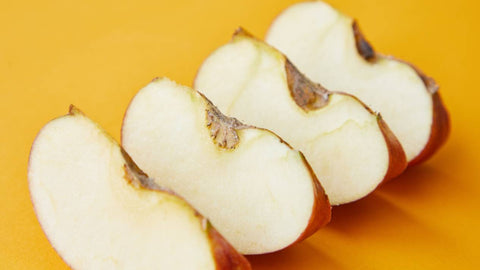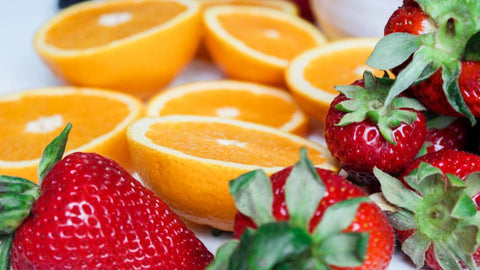Plant-based diets are one of the biggest health trends and rightly so with research showing they not only benefit our health but also the environment. In this week’s blog our resident dietitian and nutritionist Nicky from Eatsense takes a deeper look at plant-based eating and why most of us could benefit from including more plant foods in our diet.
What is a plant-based diet?
Simply put a plant-based diet or eating pattern places the focus on primarily plant foods that are whole and minimally-processed such as fruits, vegetables, legumes, soy products such as tofu and tempeh, nuts, seeds, oils and whole-grains. It doesn’t have to mean that you are strict vegetarian or completely avoid meat or dairy products. It simply means that the largest proportion of your foods come from plants.
There is no one plant-based diet and they can come in lots of shapes and sizes such as:
- Semi-vegetarian or flexitarian includes eggs, dairy foods, and occasionally meat, poultry, fish, and seafood
- Pescatarian includes eggs, dairy foods, fish, and seafood, but no meat or poultry
- Vegetarian includes eggs and dairy foods, but no meat, poultry, fish, or seafood
- Vegan includes no animal foods
- The Mediterranean diet includes fish, poultry, eggs, cheese, and yogurt a few times a week, with meats and sweets less often
What are the health benefits associated with plant-based eating patterns?
There is a growing body of evidence supporting the health benefits of plant-based eating and this is mainly because they contain higher amounts of fibre and plant-chemicals called phytochemicals which improve our health and reduce our risk of disease. When done right, plant-based diets also tend to be lower in things that may have a negative impact on our health such as salt, added sugars, cholesterol and saturated fat.
The Mediterranean diet, one variety of a plant-based diet, has been shown to reduce the risk of heart disease, metabolic syndrome, diabetes, certain cancers (specifically colon, breast, and prostate cancer), depression, and in older adults, a decreased risk of frailty and dementia, as well as better mental and physical function.
Vegetarian diets have also been shown to support health, including a lower risk of developing coronary heart disease, stroke, high cholesterol, high blood pressure, type two diabetes, and increased longevity. They are also associated with reduced body weight.
Plant-based diets offer all the necessary protein, fats, carbohydrates, vitamins, and minerals for optimal health, and are often higher in fiber and phytonutrients. However, some vegans may need to add a supplement (specifically vitamin B12) to ensure they receive all the nutrients required.
What nutrient deficiencies do you need to be careful of?
Vegetarian and vegan diets need to be well planned in order to prevent nutrient deficiencies. Depending on the type of plant based diet you follow some of the nutrients you may need to be aware of are
Iron: Iron helps carry oxygen in the blood. It’s naturally present in many plant and animal foods, however, the type of iron in animal products (called heme iron) is more easily absorbed than the non-heme iron found in plant foods. Legumes, tofu, nuts and seeds, whole grains and fortified breakfast cereals are all plant-based sources of iron. Pairing food sources of iron with foods rich in vitamin C such as lemon juice, kiwi fruit, red capsicum, broccoli and tomatoes can help with absorption.
B12: Vitamin B12 is needed by the body to make red blood cells and a deficiency can lead to anaemia, a condition in which the blood doesn't have enough healthy red blood cells. Vitamin B12 is only found naturally in animal products such as meat and eggs. It cannot be produced by plants, so consuming foods fortified with B12 or taking supplements is recommended for people following a strict plant-based diet such as a vegan diet.
Calcium: Calcium is needed for healthy bones and teeth. Dairy foods are the best source of calcium, however, it can also be found in plant foods, generally in much smaller amounts. Fortified plant-based milks, sesame and chia seeds, almonds, unhulled tahini, dried fruit, kale and tofu (if a calcium firming agent is used – check the ingredients on the label) are all plant-based sources of calcium. If avoiding dairy, aim to include plenty of plant-based calcium sources in your diet and supplement if necessary
Omega-3 fatty acids: Omega-3 fatty acids are essential fats, meaning the body can’t make them on it’s own and therefore we need to get them from the food we eat. Fish and seafood are one of the richest and best sources of omega-3s, however, they are present in a different form in plant foods such as walnuts, flaxseeds (also called linseeds) and flaxseed oil, chia seeds and leafy green vegetables, so it is possible to consume adequate amounts without eating animal products.Vegans are most likely to be deficient in are the omega-3 fats
How can you eat more plant-based?
-
Try one of Activate Foods healthy vegetarian meals
-
Start your day with whole grains for breakfast such as porridge, a natural muesli, seeded or sourdough toast or weetbix and serve with nuts or seeds and fresh fruit
-
Aim for 50% of your plate to be filled with salad or vegetables at lunch and dinner and aim for a minimum of three different colours
-
Snack on vegetables between meals with hummus, tomato salsa, or guacamole
-
Replace half of your mince in meals such as taco mince and spaghetti bolognese with chickpeas, blackbeans or lentils
-
Reduce your portions of meat at main meals and make them a side not a centerpiece
-
Choose healthy fats such as extra-virgin olive oil, olives, unsalted nuts and nut butters, seeds, and avocado instead of butter
-
Include 1-2 meat-free meals per week and base these around legumes, whole grains, and vegetables to help keep the family full
-
Grab a piece of fruit when you’re peckish or want an easy dessert
-
Invest in a good plant-based or vegetarian cookbook
Before you run to the shops and fill your trolley with a whole range of highly processed meat substitutes or “vegan junk food” like fake chicken schnitzels and hot dogs, remember not all plant-based diets are healthy. Go for minimally processed foods as close to their natural form if you want to reap the benefits of this way of eating! While plant-based diets may not be for everyone, remember that they don’t have to be completely devoid of animal products in order for you to reap the benefits. Put simply- we could all do with including more plant foods in our diet!
For more handy health tips follow Eatsense on Instagram and Facebook.
Shop 2 / 222 The Entrance Rd, Erina NSW 2250


